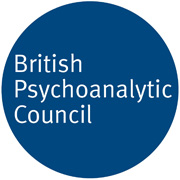Who can get help?
People who benefit most are usually those who want to understand themselves better and who have the motivation to commit to the process, even when it involves facing emotional pain.
Psychoanalytic psychotherapy can help with a range of problems, particularly difficulties that can impact on relationships:
- burdened by resentment, disappointment or despair
- that family problems are too much to bear
- that you have to harm yourself to feel better
- that life is not worth living or that there is little hope for change
- that you struggle with physical problems which are not easily explained or don’t fit into a diagnosis
- depression
- anxiety
- difficulty making or sustaining relationships, or repeatedly becoming involved in unsatisfying or destructive relationships
- feeling like you can’t cope
- self-destructive behaviour
- identity problems
- psychosomatic disorders
- coping with the effects of abuse
- sadness, grief or emptiness
- difficulties coming to terms with losses such as bereavement, divorce or unemployment
- eating disorders
- self-harm
- obsessive behaviours
- panic attacks and phobias
- lack of confidence or extreme shyness
- extreme mood swings


